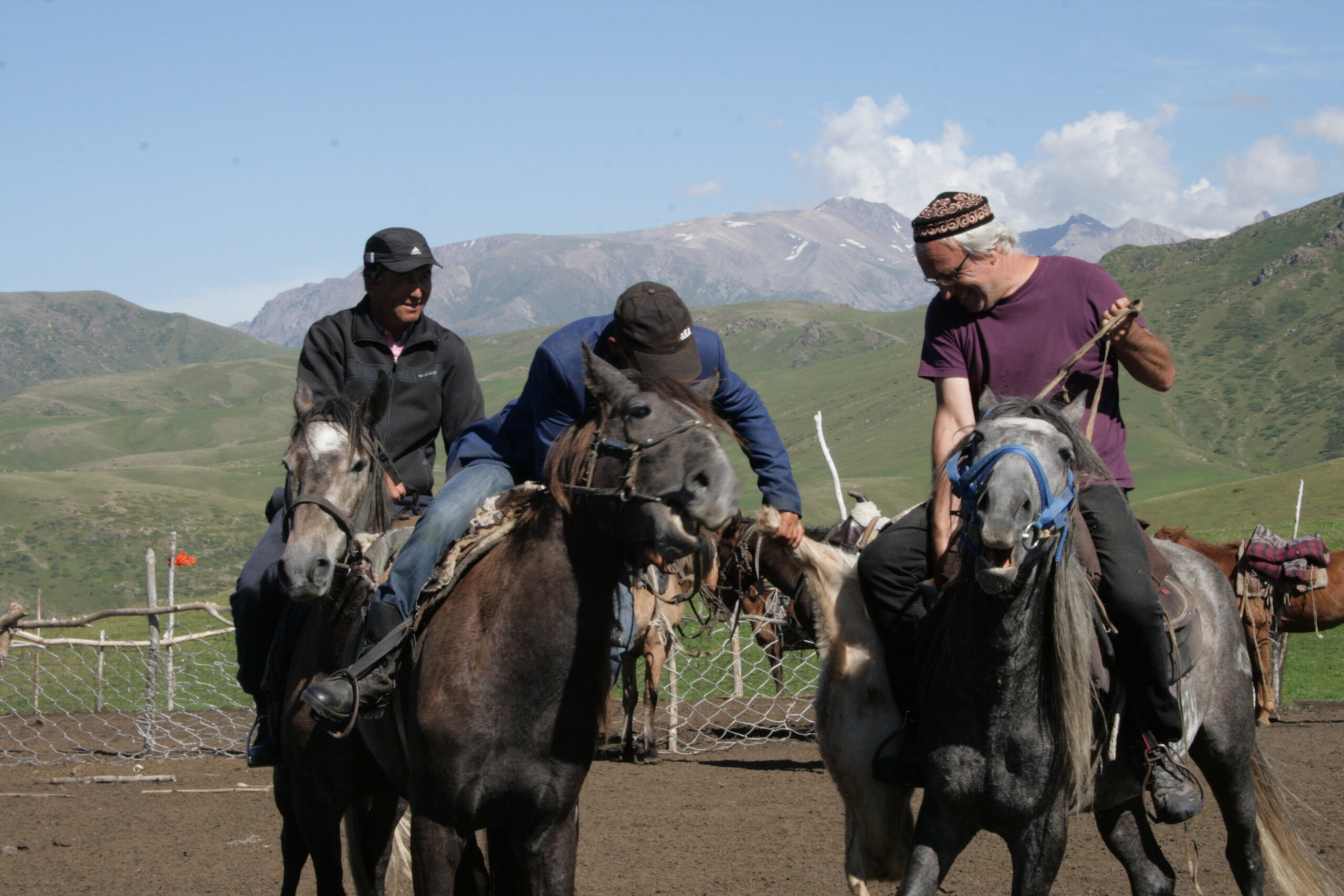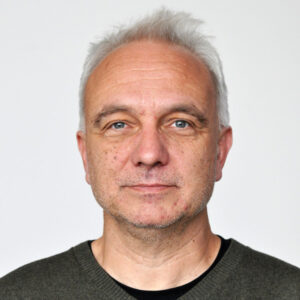ASTANA – Scientific studies of Swiss economic anthropologist Peter Finke have encompassed the transformation of the socialist systems in Central Asia and the regional adaptation to a globalizing world. The professor of the University of Zurich shared his perspective on Central Asia’s development and spoke about ongoing projects in an interview with The Astana Times.

Finke (on the right) playing kokpar (the ancient horseback battle for goat carcass) in the highlands of Taldykorgan. Photo credit: Finke’s archive.
The first time Finke traveled to Kazakhstan was back in 1994. “It was a difficult period for Kazakh people – in the 1990s, life was extremely risky,” he noted. Since 2010, Finke has been visiting Kazakhstan every year for academic purposes, except for the pandemic period.
“Living conditions in Central Asia have improved enormously. Kazakhstan, for example, was able to exploit its natural resources and mitigate negative effects. The market has become predictable. The legal system has recovered,” he said.
“In economic terms, the growth is remarkable,” added Finke, addressing Kazakhstan’s accomplishments not only in the regional context but compared with other states.
Central Asia’s post-socialist transformation

Peter Finke.
Since his early career, Finke’s particular interest has focused on changes that affected Central Asian nations with the transformation of socialism and the uncertainties of the post-Soviet period.
“Of course, there are ups and downs like everywhere else in the world,” Finke noted.
“Since the collapse of the Soviet Union, I became interested in the impact of the breakdown of socialism on the lives of ordinary people. It was a situation of a deep, dramatic crisis, extreme uncertainty, and insecurity. The time for new hierarchies and inequalities to arise,” he said.
The effects of the collapse of socialism, including the subsequent redistribution of property and implications for individual livelihoods, became part of his research interest in the 1990s.
On the role of Pan-Turkism
The joint voice of the Turkic world, according to the professor, is a shared history, large geography, and common heritage, which is an advantage given the global lack of trust.
“Historically speaking, pan-Turkism evolved in the late 19th century, particularly as a reaction to other pan-movements, such as pan-Slavism, pan-Germanism, and others,” he said. Finke mentioned that there were those who succeeded, bringing an example of Pan-Italianism, which significantly contributed to the creation of the Italian state.
“Larger nationalist movements aren’t what neighbors would be very keen on, Tajikistan, for example,” he said, referring to Central Asia. Tajiks are the only non-Turkic population in the Central Asian region, representing Persian-speaking Iranian ethnic groups.
The Turkic unification continues to gain momentum amid geopolitical shifts. In November, Kazakhstan welcomed the heads of Turkic states – Azerbaijan, the Kyrgyz Republic, Türkiye, Turkmenistan and Uzbekistan, at the 10th-anniversary summit of the Organization of Turkic States (OTS). As part of the high-level meeting, Kazakhstan introduced eight pillars that underlie the country’s chairmanship in the OTS for 2024.
The concept of tradition in Central Asia
“In contemporary Central Asia, the development of tradition as an analytical concept has gone hand in hand with the concept of capitalist modernity, just as it served a socialist cause in the preceding decades,” reads an academic publication on practices of traditionalization in Central Asia, written by Finke and Judith Beyer, the professor of social and political anthropology at the University of Konstanz in Germany.
Beyer states that “tradition was introduced and promoted from above by authorities in the newly independent nation-states, who drew on allegedly authentic traditions to claim continuity with a distant past, which allowed them to establish national narratives that helped legitimize their claims over a certain territory.”
“Traditions fulfill a certain purpose. They are meaningful in a way that helps people explain the world and build up relations with each other. A lot of our traditions are not that old. They are invented in the sense that they change and accommodate to present needs or purposes,” Finke explained.
The EU-Central Asia research and training projects
The professor is now taking part in the implementation of the two staff exchange projects in Central Asia.
One of them is the Central Asian Law Initiative, a four-year research and training project funded by the European Commission. Its purpose is to promote a greater understanding of the interlinkages between legal cultures, local business environments and governance in Central Asia and the European Union (EU).
Despite fast-growing economic relations between Central Asia and the EU, contradictory patterns, especially related to the rule of law, indicate the need for deepening mutual trust.
Fourteen institutions from 11 countries in Europe and Central Asia are involved in its implementation.
They include the Academy of General Prosecutors Office of Uzbekistan, Azerbaijan’s SIAR Research and Consulting, Charles University in Prague, Istanbul Medipol University, Khujand Polytechnic Institute of the Tajik Technical University, Riga Graduate School of Law, Swedish Lund University (project coordinator), Tebigy Kuwwat Public Association in Turkmenistan, Turkish Marmara University, University of Latvia, University of Manchester, University of Zurich, Westminster International University in Tashkent, and Zhetysu University in Kazakhstan.
The second reason for Finke to continue visiting Central Asia is the Multilevel Orders of Corruption in Central Asia (MOCCA) project, which conducts interdisciplinary research in Kazakhstan, the Kyrgyz Republic, Tajikistan, Turkmenistan, and Uzbekistan.
It examines the interplay between global anticorruption norms, nation-state laws, and legal cultures in Central Asia.
It includes eight European universities and nine partners in Central Asia.
Both projects inform international organizations and decision-makers in the EU and Central Asia on possible ways to improve the business and investment climate, the rule of law, and governance in the region.

